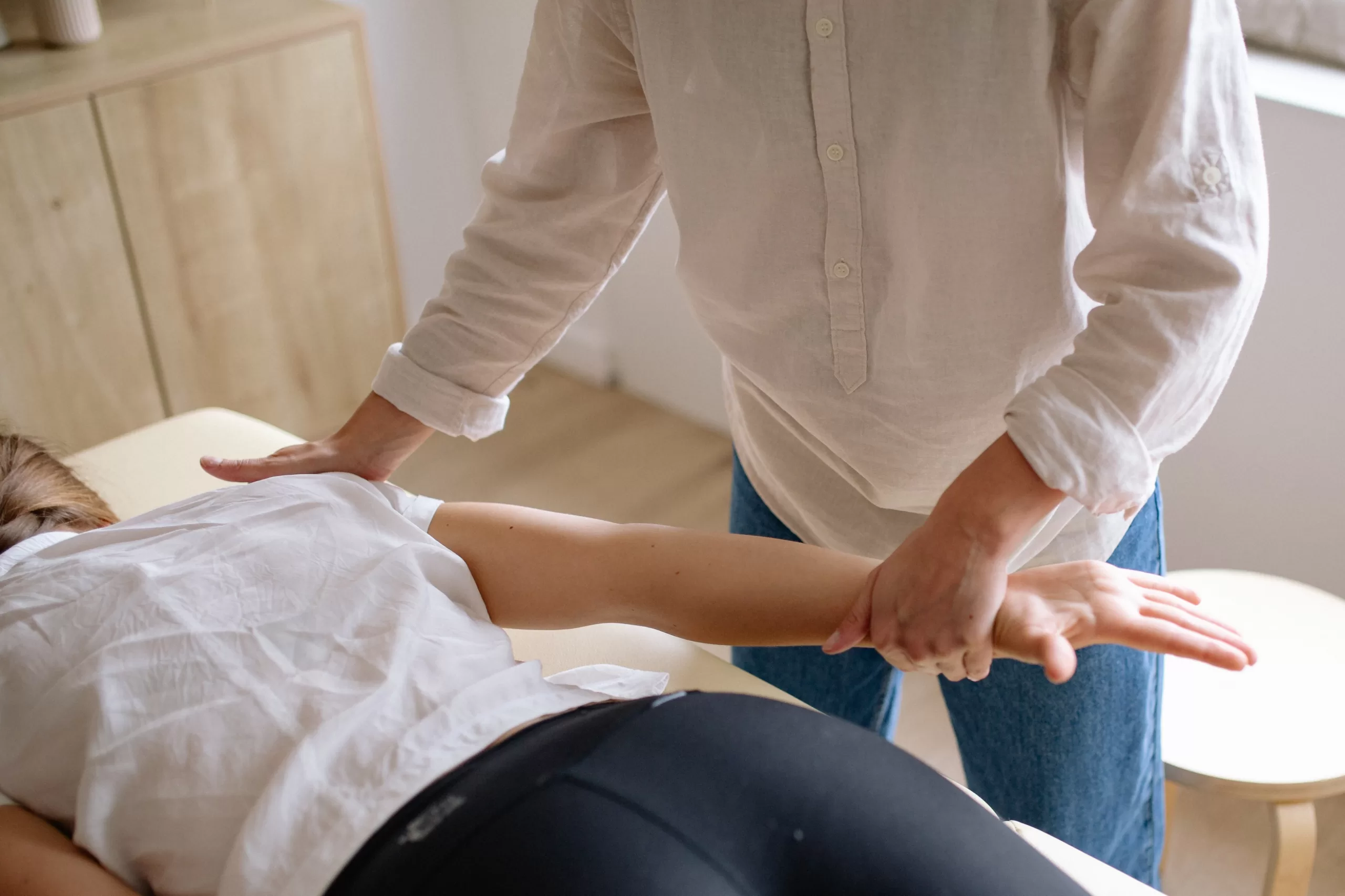Torn Cartilage in the Knee

The most common cartilage tear to occur in your knee will be a medial meniscal tear and most meniscal tears improve with time and physiotherapy.
Most acute meniscus injuries occur via a twisting injury, often during running, skiing or pivoting on a grounded foot while playing sport. People complain of hearing a ‘click’ followed by a sudden onset of pain most commonly experienced at the inner or outer joint line of the knee. The knee will swell within 24 hours and there will be loss of both bending and straightening range of movement. Some people also experience locking of the knee but this is indicative of a more severe tear which doesn’t usually respond to physiotherapy management. Symptoms will vary significantly depending on the severity and size of the tear.
A chronic tear will occur where there has been long term damage and this might be due to an old injury to another part of the knee or possibly as a result of taking certain medications over a prolonged period.
Physiotherapy treatment of meniscal tears varies significantly depending on the severity of the tear. Small and degenerative tears will usually respond well to physiotherapy.
Manual and exercise therapy and are used in the early stages of treatment to ensure a good recovery. Laser Therapy has been proven to be beneficial as it works on a cellular level to enhance healing. As your pain reduces, your physiotherapist will then prescribe a knee strengthening exercise program to reduce the bone stress and increase the stability of your knee. It will take approximately 6-8 weeks for a meniscal tear to heal and a more severe tear might require arthroscopic (keyhole) surgery but in most cases a course of physiotherapy is trialled initially. In the case of surgery, most people will commence a rehabilitation program guided by a physiotherapist shortly after.

